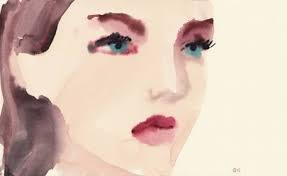Source: vogue.co.uk
I have lost count of the number of times I have heard women around me say “I don’t want to put hormones in my body if I can help it” when talking about contraception or trying to manage heavy periods, PMS or conditions like PCOS or endometriosis. But where does this fear come from?
Yes, there are many known side-effects to hormonal treatments (weight gain, skin problems, mood disturbance, gut issues) like the pill, and it can make some women feel awful. Others won’t feel anything. We also know that, because options are limited when it comes to women’s health (thanks to a systematic lack of funding for research), doctors often put women on hormonal medication in a leap of faith, hoping it will help. However, no two bodies will ever react in exactly the same way. It is important we remember that hormonal contraceptives can also be a godsend for some women – particularly as the wellness industry continues to expand and decry “traditional” medical intervention, a narrative that, if bought into, could potentially stop women finding relief.
I am about to try the combined pill again for the first time since I was 19, in an attempt to control cyclical pain (among other delightful symptoms) that is finally, after 12 years, being tentatively diagnosed as endometriosis – a condition for which the contraceptive pill is a first-line treatment option. I have tried all manner of hormonal interventions in the past – the Mirena coil, the mini-pill, oestrogen gel – in an attempt to control pain and psychological discomfort. I didn’t get on with any of them, but I strongly suspect that my subconscious aversion to taking anything “hormonal” had something to do with how I contemplated the experience. At this point I am willing to try what a kind, experienced gynaecologist suggests, because the pain gives me no other option.As Alexa Chung Shares Her Diagnosis, Here’s Everything You Need To Know About Endometriosis
The pervasive idea – that I bought into for some time – that our bodies should be as “pure” and “drug free” as possible is dangerous. In fact, I think it is one of the worst societal subtexts that pits women against each other. The common idea that there is nobility in being the woman who doesn’t need drugs; who’s had hardly any medical intervention; was the champion who gave birth drug-less, carries potential harm. The thought of there being women suffering with spirit-curdling pain each month and being dead-against taking a medication that might help because it isn’t “right” or “natural”, makes me very sad indeed.
The contraceptive pill is recommended by NICE as a treatment because it continues to have a good evidence base. Again, some women tolerate it better than others. Due to the huge differences in physiology from one woman to the next, we don’t know whether it will work for us until we try it. But trying what’s available to us is precisely what we should be encouraging women who are suffering to do – just as we should be encouraging basic diet and lifestyle changes. (Smokers have an increased risk of having bad period pain, for example.) If we are in pain and are well-informed about our options, nothing that has an evidence base should be off the table.
The language around this fear of hormones really interests me. We often reject the notion of putting “hormones” – the word imbued with a certain dirtiness – into our bodies… as if hormones aren’t what keep us alive. Perhaps it’s the idea of foreign agents – synthetic versions of what we naturally have that supposedly make us fat, mad and sad sometimes. But this growing fetishisation of “natural” – keeping our bodies as “clean” and pure as possible – has capitalised on our fears and been marketed to us as an ideal to make money from us.
There has been a powerful shift in the way women conceptualise and treat their health. According to figures from the Global Wellness Institute, the global wellness industry grew 10.6 per cent from 2013 to 2015: from $3.36 trillion to a $3.72 trillion market. It is easy (and sensible) to scoff at anyone in the wellness industry making dubious, cure-all claims, but we need to think about why these claims have so much power.
As many have argued, women in the Western world have created their own alternative healthcare system in clear response to being routinely dehumanised and dismissed by the medical establishment. Only, promises from wellness “practitioners” often have foundations of sand. “Clean” is a particularly pernicious term, for example, because while regulatory bodies have started to watch companies using “natural” as a marketing tool much more closely, “clean” is far more nebulous, less open to challenge.
There is no value in living in pain, no virtue in suffering. If we are encouraging women to be open about the realities of inhabiting their bodies, let’s encourage them to be properly informed, ask more questions from caregivers about what might help, and do away with this bogus idea of “purity”. A woman should be able to take whatever she has found gives her some peace of mind and body without feeling guilty.
